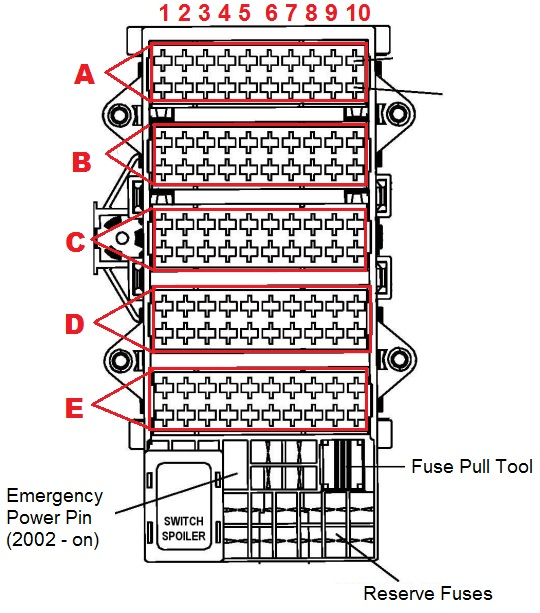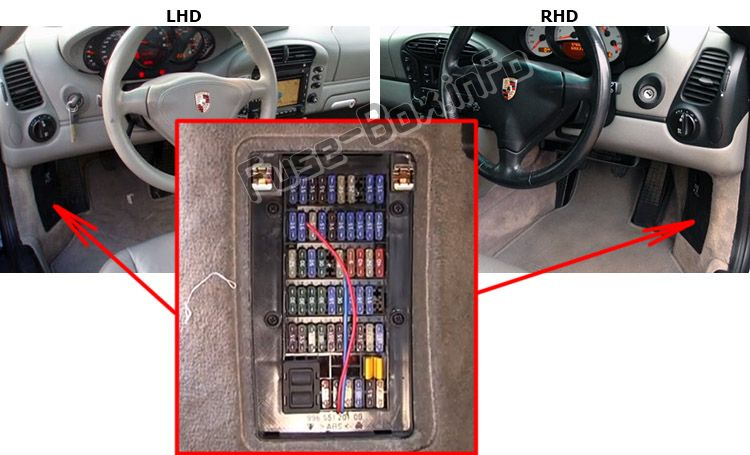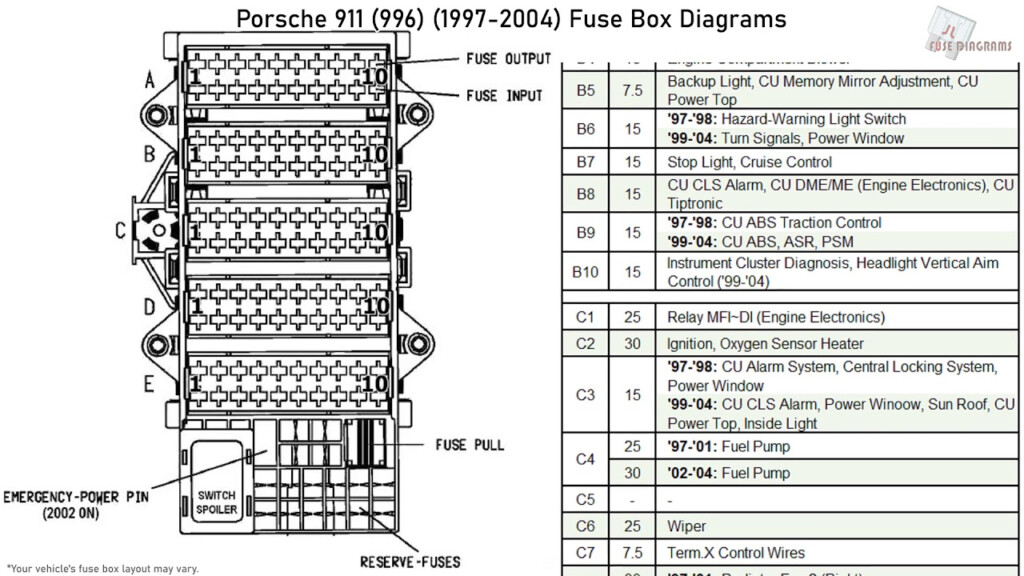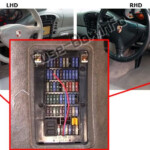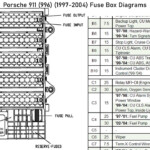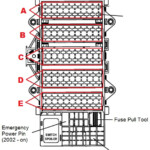Porsche 996 Fuse Box Diagram – Fuse box diagrams are essential tools to understand and troubleshoot the electrical system of your car or home. They show the purpose and layout of circuit breakers and fuses that safeguard circuits. This guide will assist you in understanding fuse box diagrams. It also includes symbols and common troubleshooting steps.
Types Fuse Box diagrams
A diagram of the fusebox is a useful tool in home repair and electrical projects.
There are fuse box diagrams in many situations, including cars and residential properties. Here are two typical types.
A. Automotive Fuse Box Diagrams: These schematics are specific to vehicles and show the circuits and fuses that operate elements such as headlights as well as engine control modules and audio systems. They are usually found in your owner’s manual or on a label in the fuse box.
C. Home Fuse box Diagrams They are also known as home fuse box diagrams. They provide the layout of circuit breakers in an electrical system for residential use. The diagrams, which are typically found near or in the door of an electrical panel are used to provide homeowners with information about the residence.
Understanding Fuse Box Diagram Symbols
The symbols of fuse boxes are visual representations of the different parts of an electrical system. The following icons are popular:
- Fuses are small rectangular shapes with a number they represent the fuse’s amperage ratings.
- Circuit Breakers: A symbol resembling a switch representing a resettable safety device
- Earth: Looks like an “T” inverted , with the horizontal marking of an electrical ground connection
Common Fuse Box Issues
This guide can aid you in diagnosing and fixing electrical problems.
- Step 2: Identify The Issue
First, you must identify the electrical component that’s not working properly in your vehicle or at home. It could be your light, outlet, appliance, or any light source within your house; or perhaps your vehicle’s radio or air cooling.
- The Second Step: Find the correct fuse
Find the circuit breaker, or fuse that is connected to the component that is malfunctioning by using the fuse box diagram. They are typically identified with a description, or a symbol.
- Step 3 – Confirm and Replace the Fuse
Remove the fuse or remove the circuit breaker and examine for signs of burnout or damage. Replace the fuse using one of the same amperage or reset the circuit breaker if needed. To ensure that the part is functioning correctly, test it.
Conclusion
The key to troubleshooting electrical problems at the home or in your vehicle is knowing the diagrams of fuse boxes. You can quickly identify the most common problems and resolve them by following these steps.
